Smartphones have become an inseparable part of modern life, revolutionizing communication, work, and entertainment. However, excessive smartphone use (ESU) has been linked to various negative consequences, including addiction-like behaviors, impaired mental health, and diminished attention spans. Recent studies suggest that smartphone-related cues can trigger neural responses similar to those seen in substance addiction, reinforcing compulsive usage patterns. Understanding the effects of smartphone restriction on cue-related neural activity can provide valuable insights into developing interventions for individuals struggling with ESU.
The Role of Cue Reactivity in Smartphone Use

Cue reactivity (CR) refers to the brain’s response to stimuli associated with a habitual or addictive behavior. In the case of smartphone use, cues may include notification sounds, phone screens lighting up, or simply seeing a smartphone in one’s environment. These cues can activate reward-related brain regions, reinforcing the compulsive urge to check the device.
Research has shown that individuals with excessive smartphone use exhibit heightened neural responses to smartphone-related cues, similar to those observed in substance addiction. This heightened sensitivity may contribute to difficulty in controlling smartphone usage, leading to a cycle of compulsive checking and craving.
Investigating Neural Activity Changes Through Smartphone Restriction
To better understand how short-term smartphone restriction influences brain activity, researchers conducted a study using functional MRI (fMRI) to measure changes in cue-related neural responses over 72 hours of smartphone abstinence. The study involved 25 young adults who were regular smartphone users.
Video : What Happens To Your Brain When You Mindlessly Scroll?
Study Design and Methods
- Participants were instructed to refrain from using their smartphones for 72 hours.
- A cue-reactivity task was designed, where participants were exposed to images of smartphones (both active and inactive) as well as neutral objects.
- Functional MRI scans were conducted before and after the restriction period to analyze changes in brain activity.
- Psychometric assessments were used to measure craving, self-control, and emotional responses associated with smartphone use.
Key Findings: How the Brain Adapts to Smartphone Restriction
1. Reduced Activation in the Reward System
One of the most striking findings was a significant reduction in activity in the nucleus accumbens and anterior cingulate cortex after 72 hours of smartphone restriction. These brain regions are heavily involved in reward processing and habit formation.
- The nucleus accumbens is associated with motivation and reinforcement learning. High activation in this area suggests strong craving and compulsive behavior.
- The anterior cingulate cortex plays a role in decision-making and impulse control. Reduced activity here indicates that participants may have experienced less compulsion to check their smartphones.
These findings suggest that even a short break from smartphone use can lead to neuroplasticity, allowing the brain to become less reactive to smartphone-related cues.
2. Alterations in Dopamine and Serotonin-Linked Activity
Further analysis using neurotransmitter probability maps revealed that activity changes in the reward system were closely linked to dopamine and serotonin receptor probabilities.
- Dopamine is a key neurotransmitter in reward-seeking behavior and addiction.
- Serotonin is involved in mood regulation and impulse control.
The findings suggest that smartphone restriction may influence neurochemical processes that drive compulsive behaviors. This could explain why some people feel withdrawal-like symptoms, including restlessness and anxiety, when they suddenly stop using their phones.
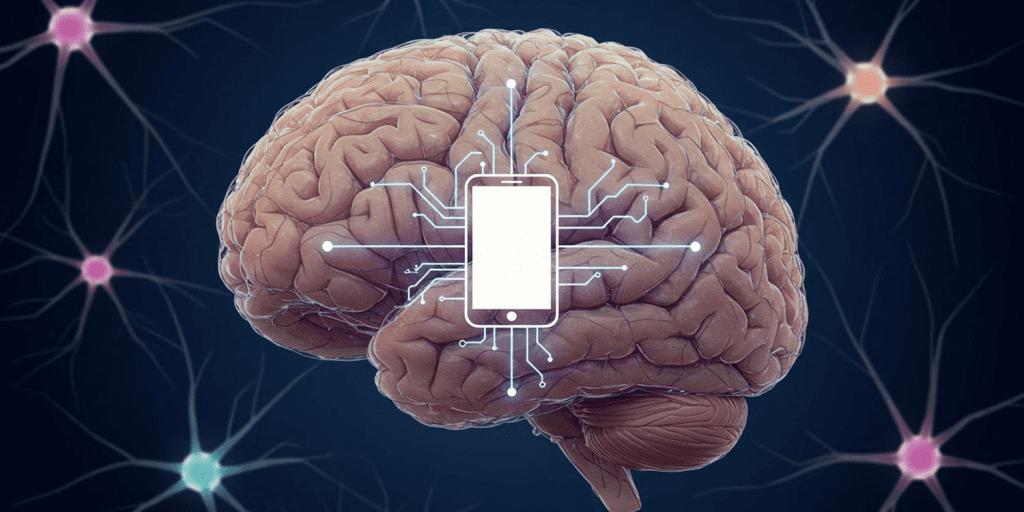
3. Increased Engagement of the Parietal Cortex
Another notable result was the increased activity in the parietal cortex, a region associated with attentional control and sensory processing.
- This suggests that participants became more aware of their environment and less preoccupied with smartphone-related distractions.
- Heightened parietal cortex activity was correlated with reduced craving scores, indicating improved cognitive control over impulsive smartphone use.
This supports the idea that limiting smartphone use can enhance focus and attentional regulation, reducing dependency on digital devices.
4. Reduced Compulsive Checking Behavior
Behavioral assessments showed that participants experienced a significant decrease in the urge to check their smartphones over time. This aligns with the observed neural changes in reward sensitivity and impulse control.
Participants also reported improvements in:
- Sleep quality: Reduced exposure to blue light and nighttime scrolling led to better sleep patterns.
- Social interactions: Without constant phone distractions, participants engaged more with people around them.
- Mental well-being: Several individuals noted feeling less anxious and more present in their daily activities.
Implications for Smartphone Addiction and Digital Detox Strategies
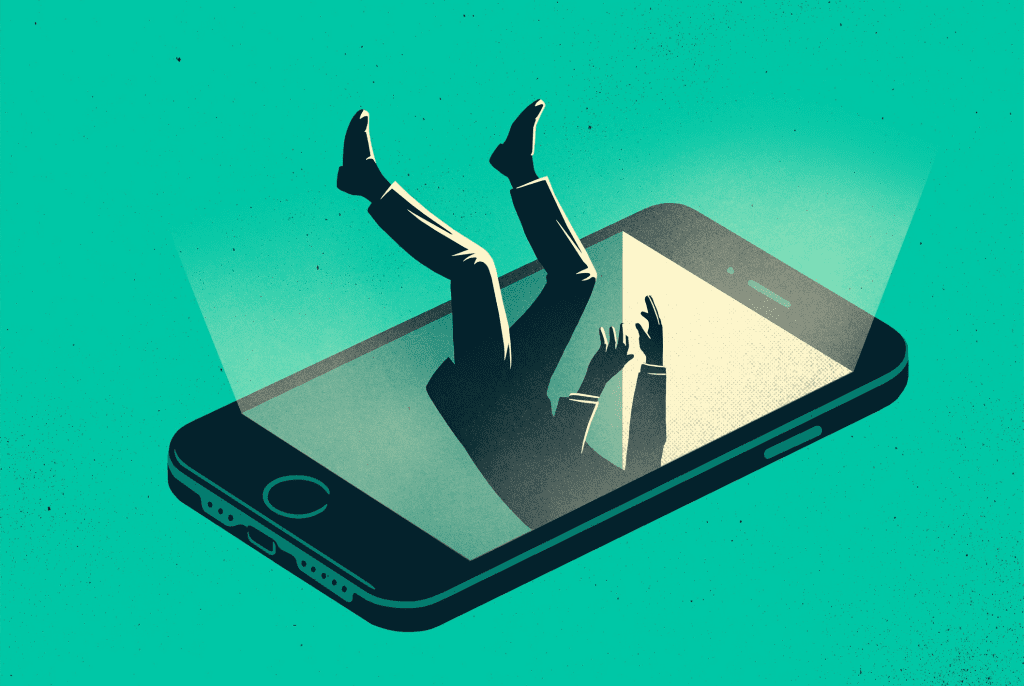
The findings of this study have significant implications for individuals struggling with excessive smartphone use. While a complete break from smartphones may not be feasible for everyone, implementing digital detox strategies can help manage usage and mitigate negative effects.
1. Scheduled Smartphone Breaks
- Taking regular breaks from smartphone use, even for a few hours a day, can help reset neural responses to digital cues.
- Setting specific times for checking messages rather than responding to every notification can reduce compulsive checking.
2. Mindful Technology Use
- Practicing conscious smartphone use by turning off unnecessary notifications and using grayscale mode can help decrease reliance on digital stimuli.
- Engaging in non-digital hobbies, such as reading, exercise, or meditation, can strengthen attention control and reduce smartphone dependency.
3. Sleep Hygiene and Nighttime Restrictions
- Avoiding smartphone use one hour before bed can improve sleep quality by preventing blue light exposure.
- Using do not disturb or airplane mode at night can minimize the temptation to check notifications.
4. Awareness Campaigns and Education
- Schools, workplaces, and mental health professionals can promote awareness of the impact of excessive smartphone use on brain function.
- Implementing digital wellness programs can encourage balanced technology use.
Video : Cell Phones Affect Brain Activity

Conclusion: How Smartphone Restriction Reshapes the Brain
The study provides compelling evidence that even a short period of smartphone restriction can lead to measurable changes in brain activity. The observed reductions in reward-related neural responses, coupled with increased attentional control, suggest that limiting smartphone use can promote cognitive flexibility, impulse control, and overall mental well-being.
As smartphone addiction continues to be a growing concern, understanding the neurological basis of cue-reactivity and digital dependency is crucial. These findings highlight the importance of incorporating healthy technology habits to ensure that smartphones remain tools for convenience rather than sources of compulsive behavior.
By making small adjustments in smartphone usage, individuals can foster better focus, improved mental clarity, and greater overall life satisfaction. So, why not start with a 72-hour break and see how your brain adapts?
I Promised a Homeless Man I’d Find Him a Family in One Evening – But First, We Went to a Salon and a Boutique

Mark meets Stuart, a homeless man, on a busy city street and makes an unusual promise to change his life in just one evening. He starts by giving Stuart a fresh haircut and buying him new clothes, determined to find him a family by the night’s end. But can Mark truly fulfill this bold promise and transform Stuart’s life?

A homeless man | Source: Freepik
You never know who you’ll encounter in life and how they might change your world.
I’m Mark, and a few days ago, I had this wholesome experience I will never forget.
So, I was sitting on a busy city street, munching on my sandwich during lunch break.
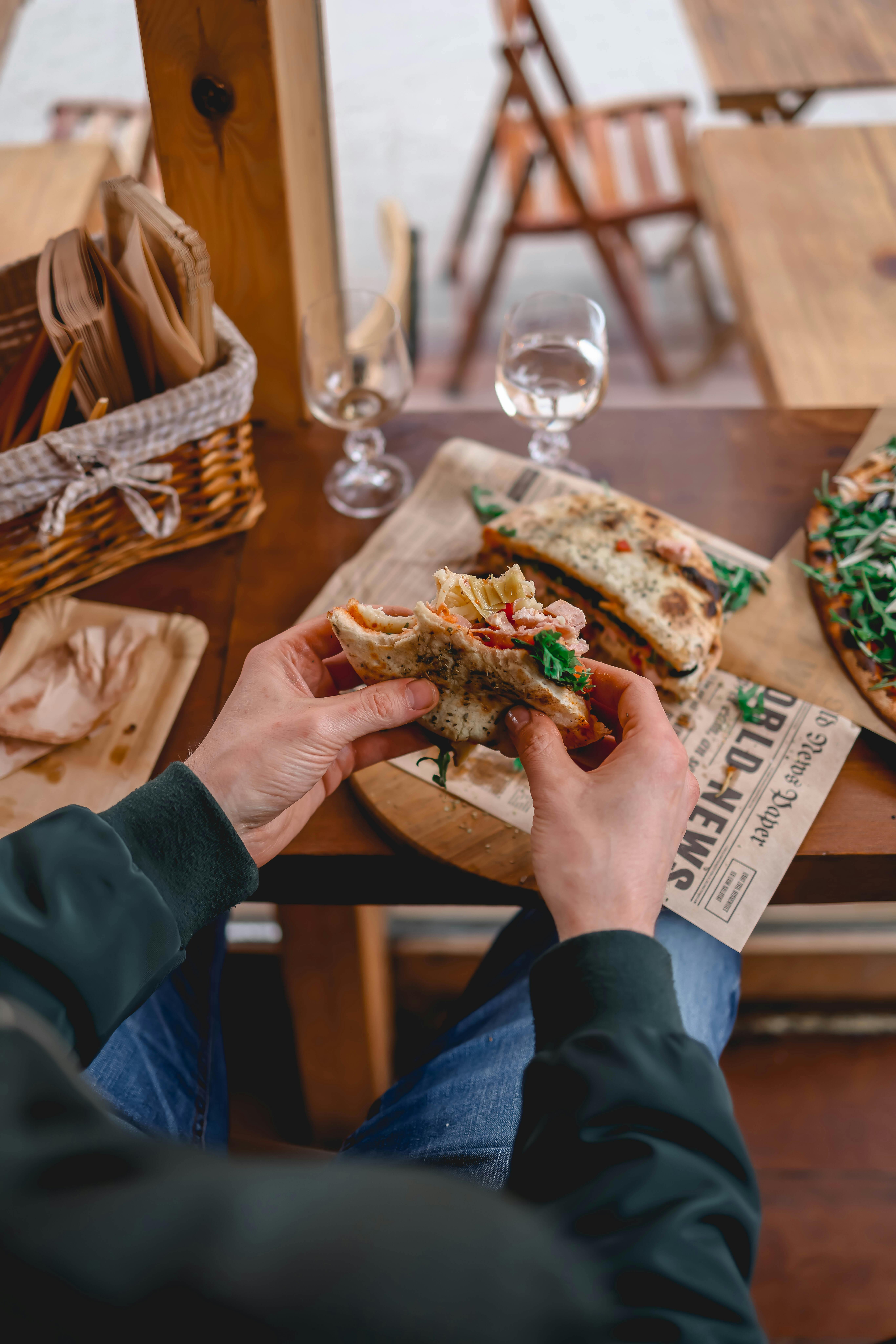
A man holding a half-eaten sandwich | Source: Pexels
Out of nowhere, this scruffy-looking guy walks up to me and hands me my wallet.
“Hey, you dropped this,” he said.
I was stunned. “Thanks, man! I didn’t even notice. What’s your name?” I asked, genuinely curious.
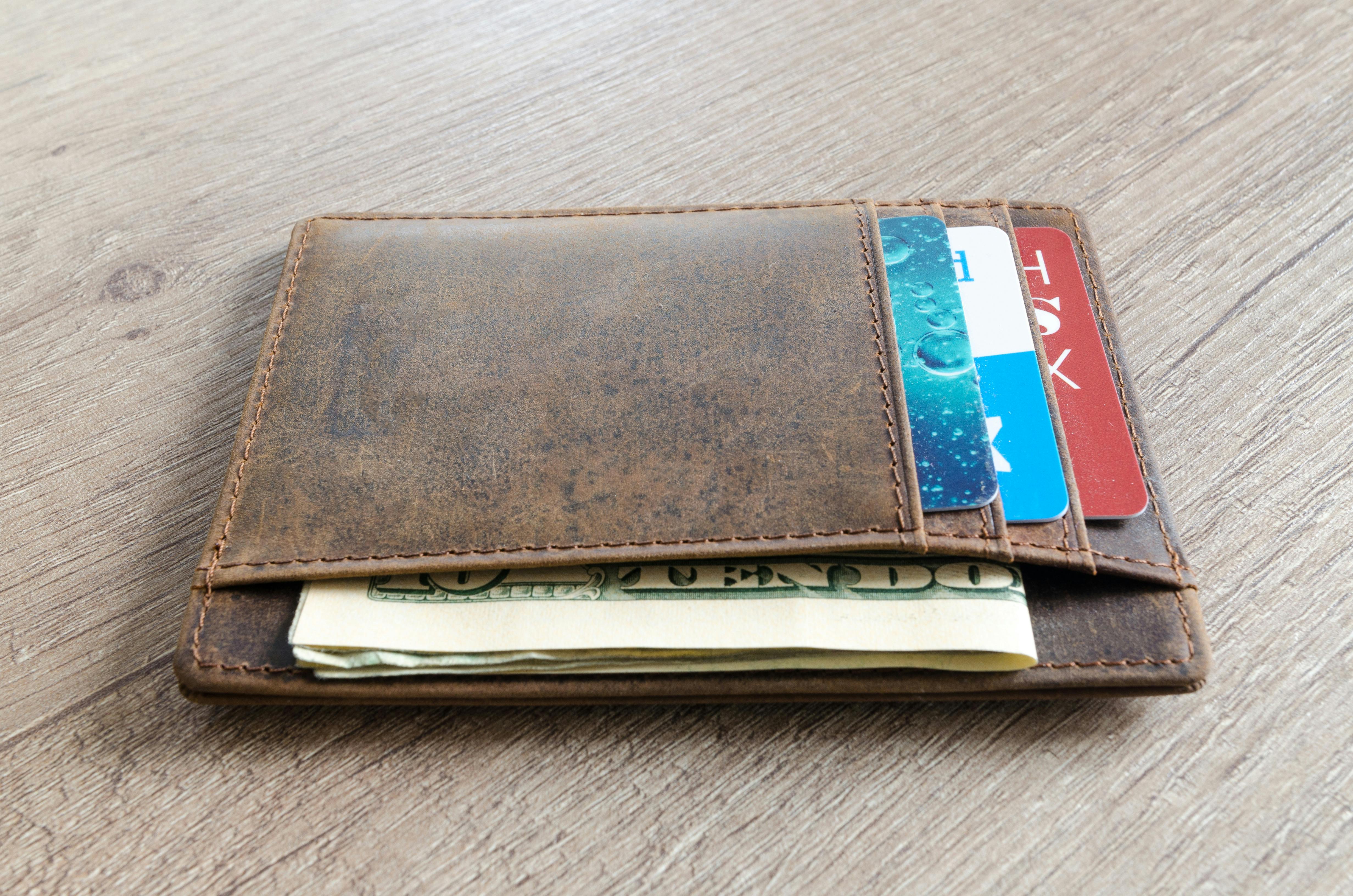
A wallet | Source: Pexels
“Stuart,” he replied with a shy smile.
“I’m Mark,” I said, shaking his hand. “I’m a barber. How about I repay you with a fresh haircut?”
Stuart looked down at his worn-out clothes and shrugged. “Why bother? I got no one to impress. Nobody cares about a bum like me.”
I imagined being in Stuart’s shoes, and his words hit me right in the feels. I knew I had to do something more.
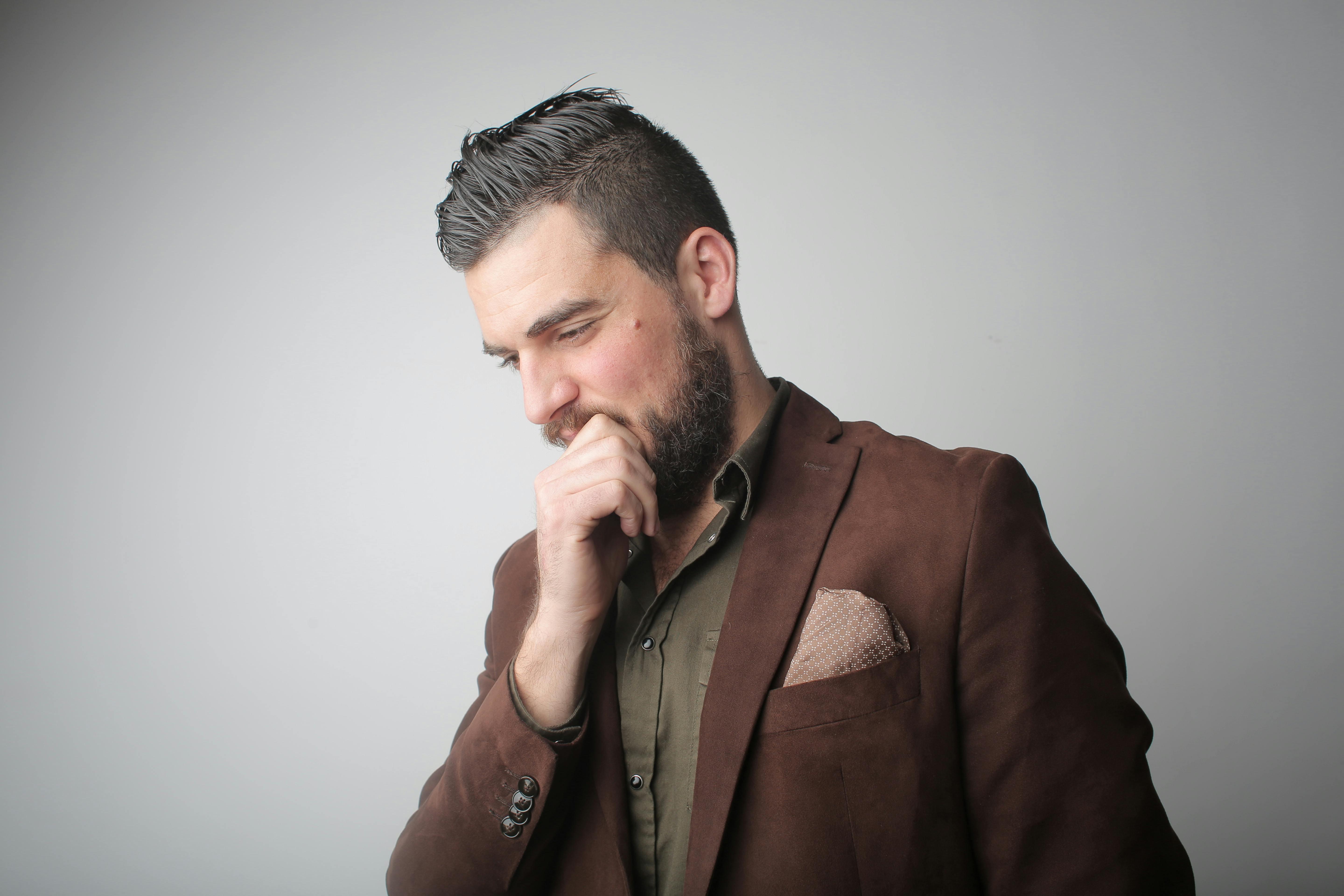
A man thinking about something | Source: Pexels
“How about this,” I said, my mind racing. “I bet you I can find you a family in one evening!”
Stuart laughed, thinking I was joking, but I grabbed his hand. “Bet on it!”
I could see he wasn’t really sure, but he agreed.
We headed straight to my shop. “Come on in, Stuart,” I said, holding the door open for him as we arrived. The place was buzzing with activity. My colleagues and a few customers gave us curious looks as we walked in.
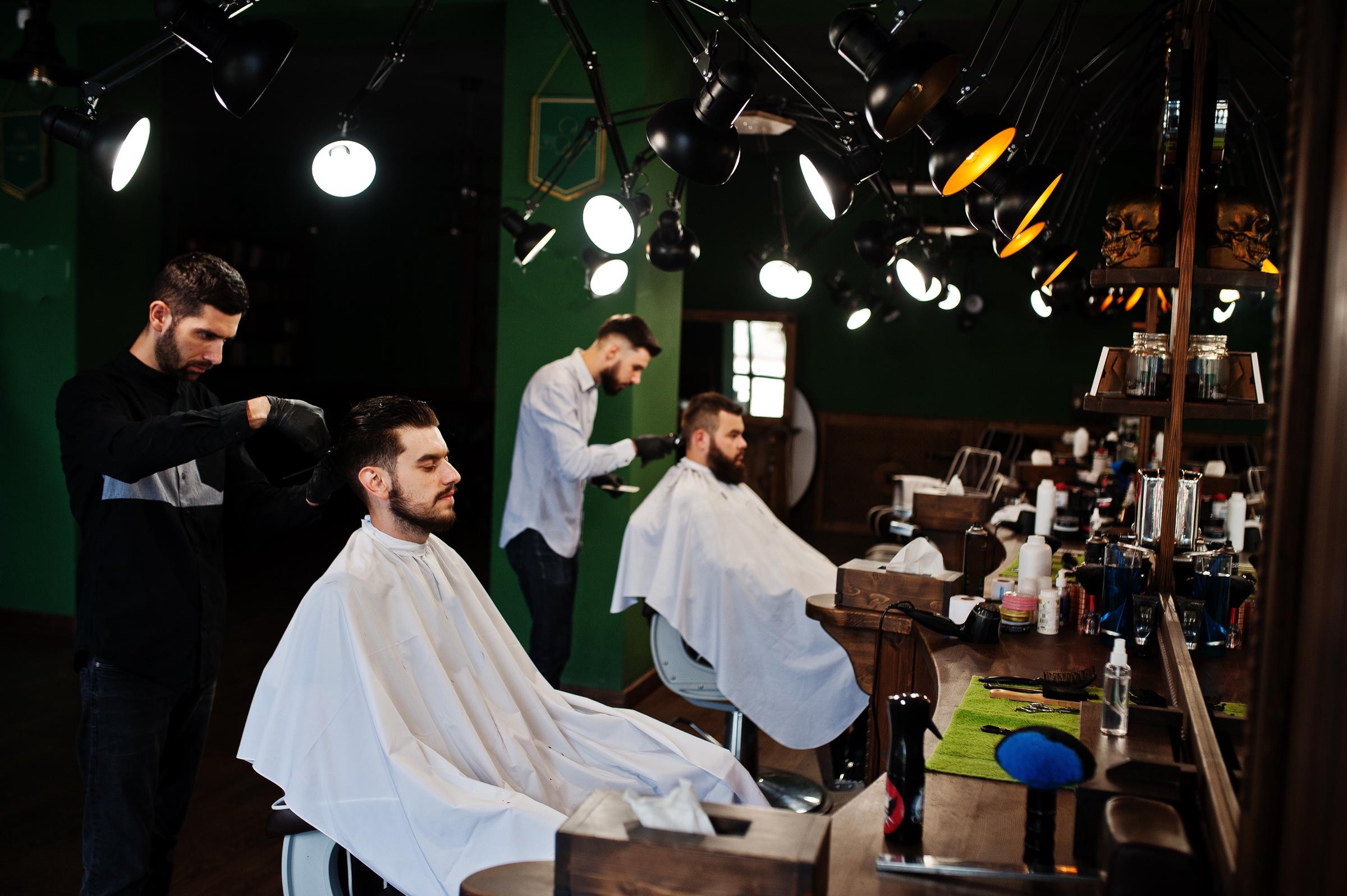
Inside a barbershop | Source: Freepik
I pointed to the chair. “Take a seat, Stuart. Let’s see what we can do.”
Stuart hesitated for a moment but then sat down. I draped the cape over him and got to work. “You’re in for a treat,” I said, picking up my clippers.
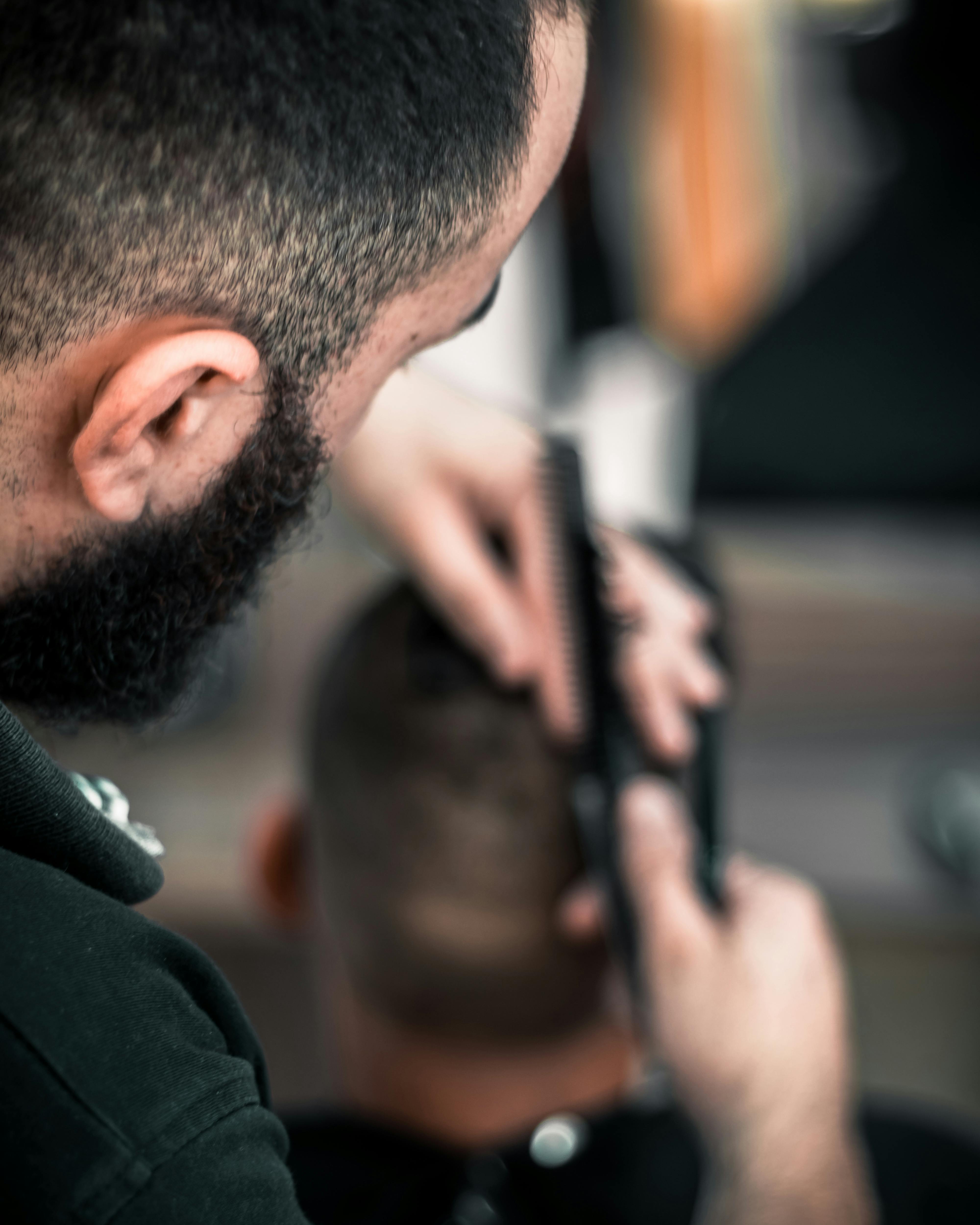
A man cutting hair | Source: Pexels
As I started cutting his hair, I could see the change happening right before my eyes. The scruffy, tired look began to disappear. Stuart was getting a fresh start, and it showed.
“How’s it looking?” Stuart asked, a bit nervous.

A smiley man at a hair salon | Source: Freepik
“Trust me, you’re going to look great,” I replied, focusing on giving him the best cut possible. Other barbers started to gather around, watching the transformation.
“Wow, Mark, you’re doing wonders,” one of them said, impressed.
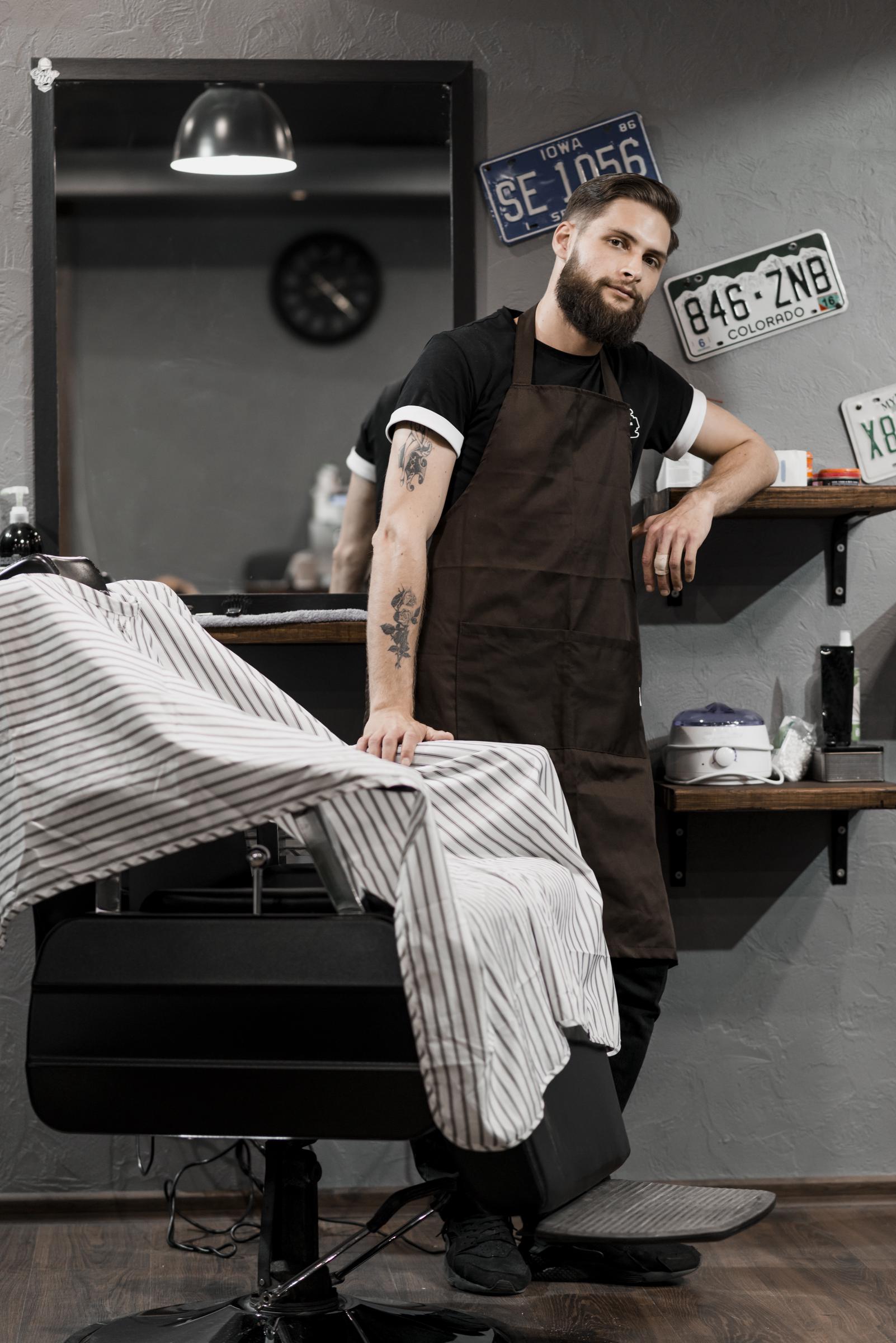
A hairdresser standing in a barber shop | Source: Freepik
When I was done, I turned the chair around so Stuart could see himself in the mirror.
His eyes widened. “Is that really me?” he asked, touching his newly styled beard and hair.
“Yep, that’s you,” I said, smiling. “What do you think?”

An elderly man looking into a mirror | Source: Freepik
Stuart grinned, looking a bit shy. “I feel like a new man. But do you think it’s too fancy for a guy like me?”
Everyone in the shop chuckled.
“Not at all,” I said. “You deserve this.”
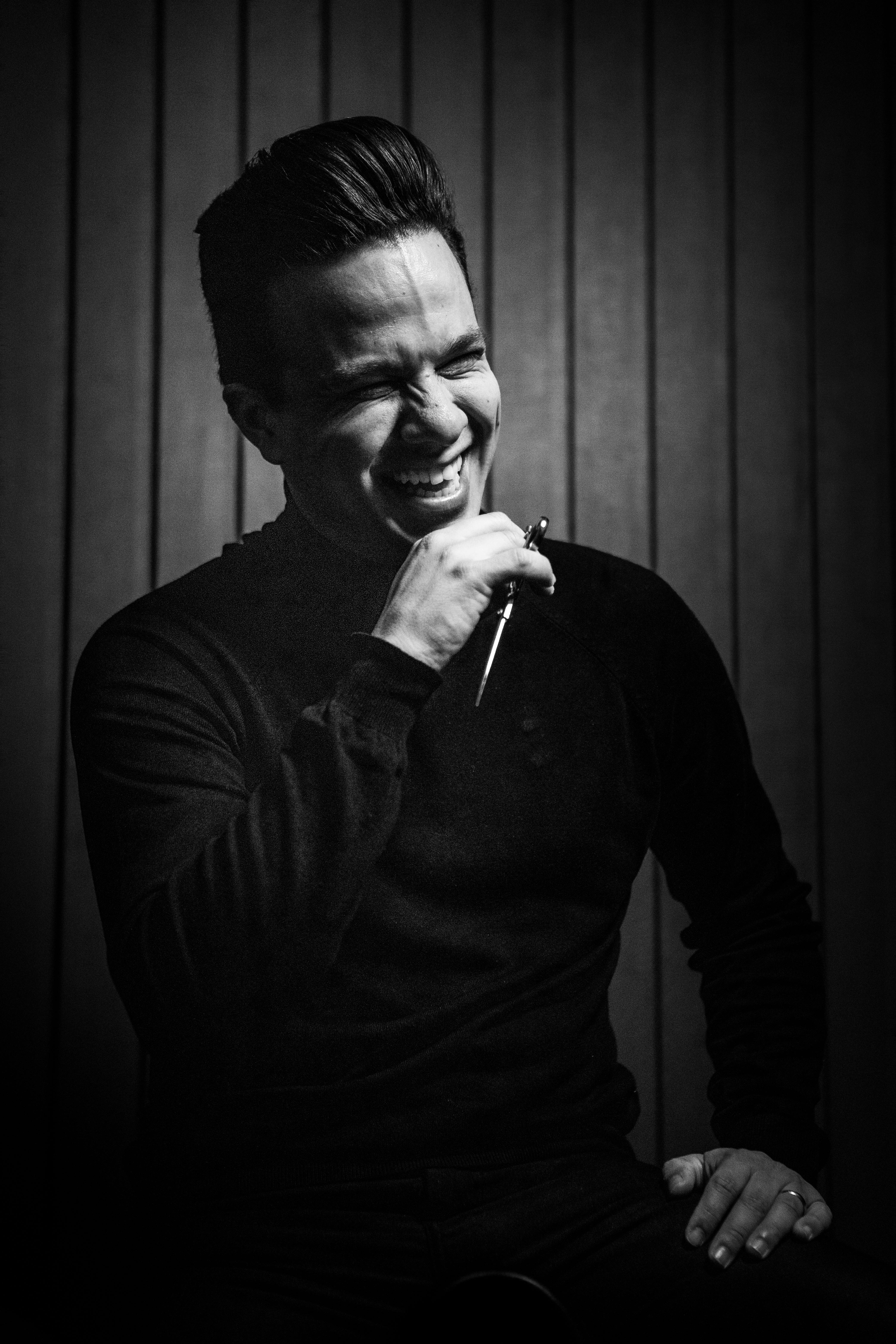
A man laughing | Source: Pexels
Stuart’s confidence seemed to soar. He stood up a bit straighter, and there was a sparkle in his eye that hadn’t been there before. “Thanks, Mark. This feels amazing,” he said.
But it wasn’t over yet. After the haircut, I decided it was time to get Stuart some new clothes.

Outfits on display inside a boutique | Source: Pexels
We walked over to a nearby clothing boutique. As we stepped inside, the staff greeted us with friendly smiles.
“Hi there! How can we help you today?” one of them asked.
“We need to find my friend Stuart here some stylish clothes,” I said, patting Stuart on the back. Stuart looked around, a bit overwhelmed. “I’ve never been in a place like this,” he whispered to me.
“Don’t worry, we’ll find something great,” I assured him. The staff quickly got to work, bringing out various outfits for Stuart to try.

A man selecting clothes | Source: Pexels
His reactions were priceless. “These pants are so tight! How do people breathe in these?” he said, making everyone laugh.
I handed him a shirt. “Just try it on, Stuart. You’ll look great.”
He reluctantly took the clothes and went into the changing room. A few minutes later, he came out, looking unsure. “How do I look?” he asked.

A man looking at outfits curiously | Source: Freepik
“Wow, Stuart, you look fantastic!” I said, giving him a thumbs up. The staff nodded in agreement.
Stuart looked at himself in the mirror, turning this way and that. “I feel like I’m wearing someone else’s clothes,” he said with a laugh. “But they do look nice.”

An older man in a suit | Source: Midjourney
“Exactly, that’s the point,” I said. “You deserve to feel good about yourself.”
After trying on a few more outfits and making everyone laugh with his witty comments, Stuart finally settled on an outfit that made him feel comfortable yet stylish.
“I think I’ll stick with this one,” he said, smiling.

A confident elderly man in a suit | Source: Pexels
“Great choice,” I said. “You’re looking sharp, my friend.”
Stuart’s confidence seemed to grow even more. “Thanks, Mark. I really appreciate this,” he said, enveloping me in a hug.
“No problem. We’re just getting started,” I said, feeling excited about what was to come.

An elderly man hugging a young man | Source: Pexels
With Stuart looking sharp, we decided to grab dinner at a cozy café.
As we walked in, Stuart seemed nervous. “I haven’t been to a place like this in years,” he admitted.
“Relax, Stuart. It’s just dinner. Enjoy it,” I said, guiding him to a table.

Inside a cafe | Source: Unsplash
We sat down and ordered some food. While we waited, I pulled out my phone. “How about we set up a date for you?” I suggested.
“A date? You’re serious?” Stuart asked, his eyes widening.
“Why not? Let’s give it a shot,” I said, smiling.

A happy man using his phone | Source: Pexels
I registered him on a dating site and quickly set up a profile. Within minutes, we got a response from a woman named Linda. She agreed to meet us at the café.
When Linda arrived, she seemed interested at first. Stuart stood up and introduced himself, looking a bit nervous. “Hi, I’m Stuart,” he said, offering his hand.

A beautiful senior woman | Source: Freepik
Linda shook his hand, but her smile faded as we talked. When she found out Stuart was homeless, her expression changed.
“You should have been honest,” she said, standing up abruptly.
“Wait, Linda, he’s a great guy,” I tried to explain, but she was already walking out the door.
Stuart sat back down, looking dejected.
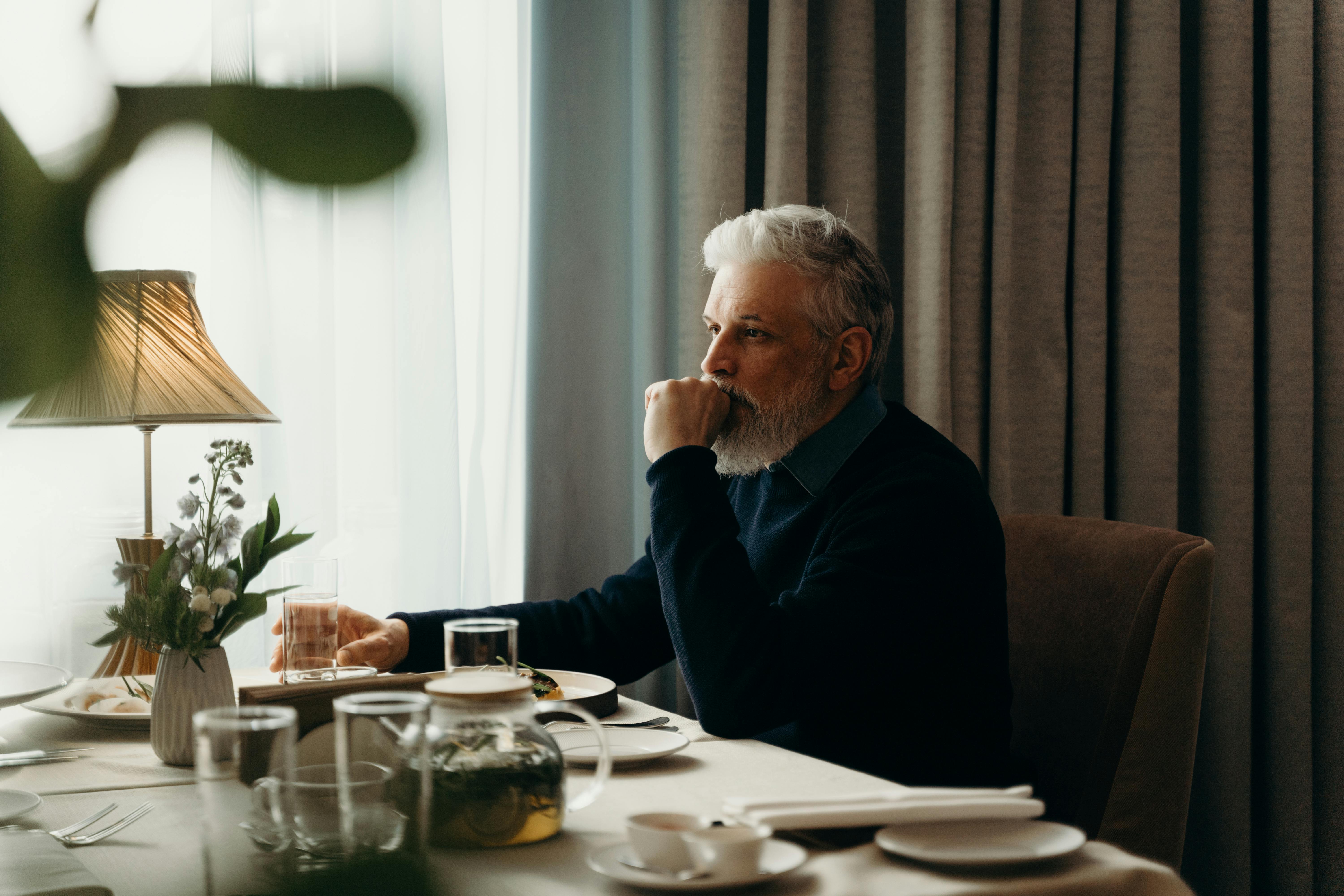
An elderly man looking sad | Source: Pexels
“I’m sorry, Stuart,” I said, feeling bad for him.
To my surprise, he smiled. “It’s alright, Mark. Today is still one of the best days of my life. It reminded me of when I used to go out with friends and meet girls.”
I didn’t know what to do at that point. I had promised him I would help him find a family, and I knew that I had failed to do so.
But the next morning, on my way to work, I saw something that made me stop in my tracks.

A man walking on a road | Source: Pexels
Stuart was sitting outside a supermarket, chatting with a woman. They were both smiling and laughing.
I walked over, curious. “Hey, Stuart!” I called out, waving.
“Mark! Good to see you,” Stuart replied, standing up and giving me a big smile. “I want you to meet Maria.”

A happy elderly couple | Source: Pexels
Maria stood up and shook my hand. “Hi, Mark. It’s nice to meet you,” she said warmly.
“Nice to meet you too, Maria,” I said, looking at Stuart with a raised eyebrow. “Where did you two meet?”
“Believe it or not, we met last night after the date fiasco,” Stuart said with a chuckle. “Maria was kind enough to sit and talk with me. We’ve been chatting ever since.”
Maria smiled at Stuart. “Stuart told me everything. I’ve had my own struggles, so I understand where he’s coming from.”
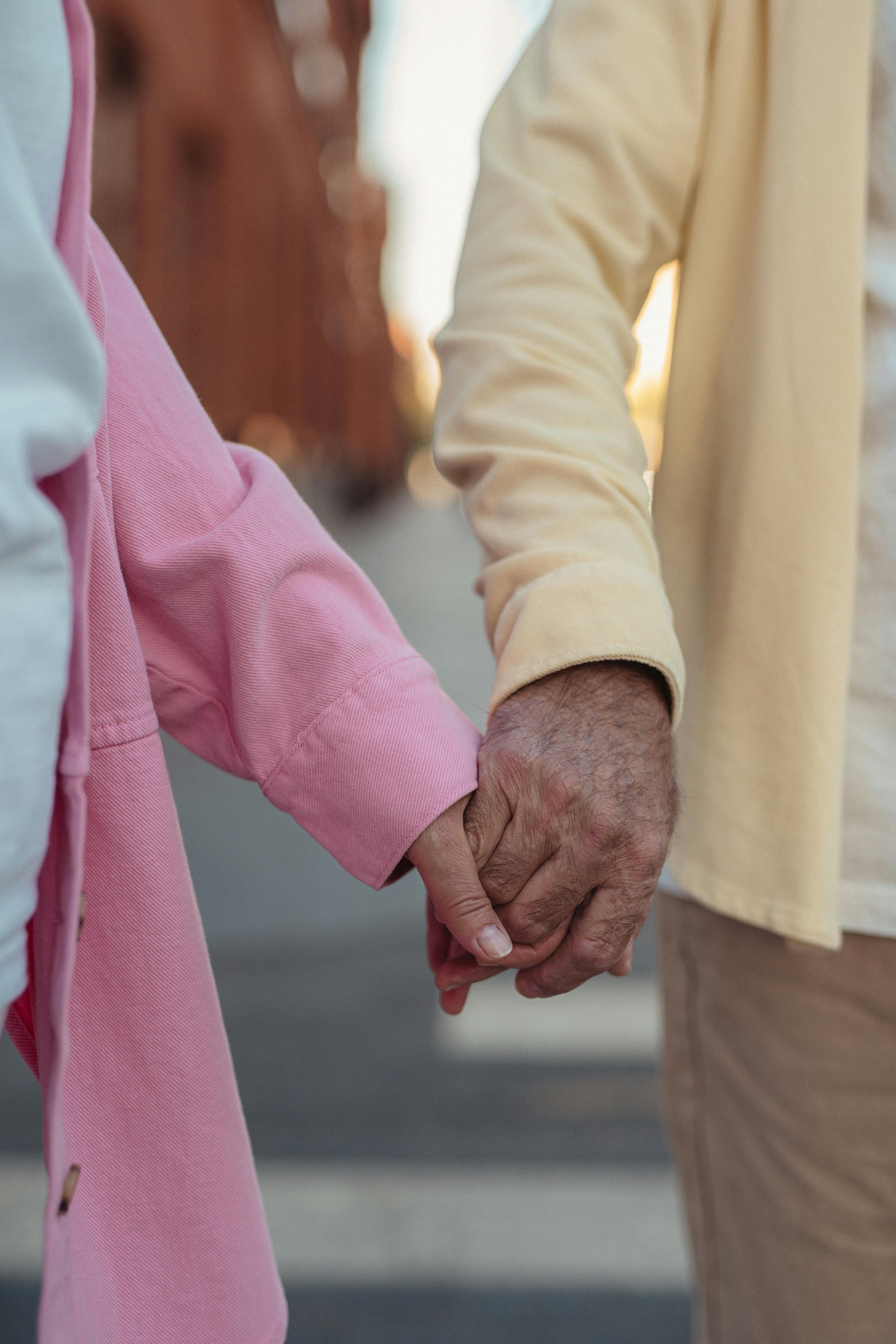
A couple holding hands | Source: Pexels
I felt a surge of happiness and pride. “That’s wonderful to hear,” I said, genuinely moved. “You two seem to get along really well.”
“We do,” Stuart said, looking at Maria with a grateful smile. “Thanks to you, Mark. That bet led to something really good.”
“I’m just glad to see you happy, Stuart. You deserve this,” I said, and we shared a hug.

A happy man | Source: Pexels
I still can’t believe it all happened.
Life has a funny way of surprising us, doesn’t it? Stuart found a friend, and maybe even a family, through a series of events that started with a lost wallet. And I learned that sometimes, all it takes is a little compassion to change someone’s life.
Have you ever witnessed something like this or changed someone’s life for the better?



Leave a Reply